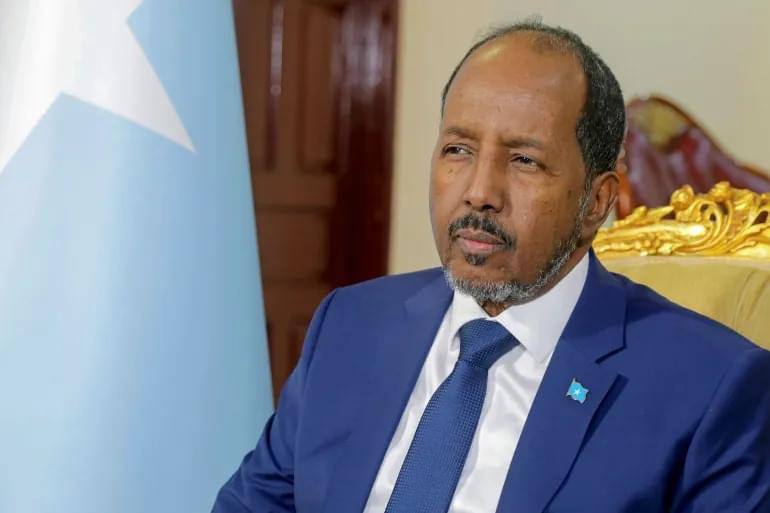Tensions Escalate as Somali President Accuses Ethiopian Security Forces of Blocking Entry to African Union Summit
Edited by : Gezahegn Mekonnen Demissie -2/18/2024

Amid escalating tensions, Somali President Hassan Mohamed has leveled accusations against Ethiopian security forces, alleging they attempted to obstruct his entry to the African Union Summit hall today. President Mohamed, accompanied by Djiboutian President Ismail Guelleh, encountered resistance from armed soldiers when they sought access to the Union Hall, according to statements made to reporters.
However, the Prime Minister's Chief Spokesman, Billene Sayum, offered a contrasting account, asserting that the President's delegation was barred from entry due to concerns regarding the presence of weapons within the entourage. The French news agency quoted Sayum, highlighting the contention over security measures at the summit.
President Mohamed did not mince words in his address to the Leaders' Conference, condemning Ethiopia's recent signing of the Sea Gate Memorandum of Understanding with Somaliland as an act of territorial annexation. Describing the agreement as "illegal," "unconstitutional," and "unacceptable," Mohamed underscored Somalia's vehement opposition to what it perceives as a threat to its sovereignty.
In response, Somalia swiftly condemned the actions of Ethiopia's delegation, characterizing them as a "botched attempt to disrupt" the proceedings of the African Union Summit. In an official statement issued in the evening, Somalia decried Ethiopia's alleged violation of international diplomatic protocols and African customs, particularly given Ethiopia's status as the host country of the African Union.
Somalia Ayaiza, representing the Somali government, emphasized the principle of equality among African leaders and called upon Ethiopia to uphold its responsibilities as the seat of the Union's office. Implicitly questioning Ethiopia's suitability as the headquarters of the African Union, Somalia hinted at the possibility of revisiting the location of the Union's headquarters should Ethiopia fail to fulfill its obligations.
As tensions mount between Somalia and Ethiopia, the incident underscores broader geopolitical rifts within the African continent, highlighting the delicate balance of power and diplomacy at play within the African Union.
test